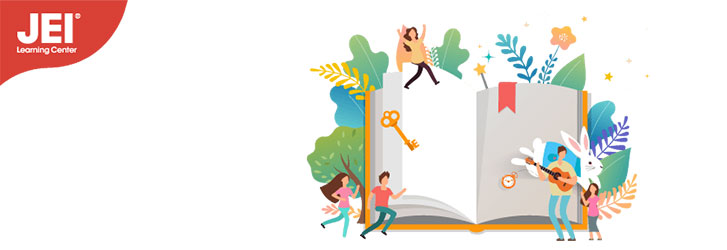
Long-term effects of the summer slide: how it follows your child into adulthood
After a long ten months of grueling office work, you put aside your glasses, rub your eyes, stretch in your chair, and think, “Finally, it’s time for my two-month vacation.” You put in the notice to your boss, who okays it without a second thought, and you leave without looking back. You are buzzing with excitement. You see amazing weeks ahead, weeks of splashing by the pool, eating unreasonable amounts of barbecue, and spending time not doing much of anything. You know what you do not see? Any work whatsoever. True bliss, indeed.
You may have read that with a puzzled look on your face, wondering, “What dream-like workplace is this and where can I find a job like this?” but you probably know instinctively, “This cannot be real.” And you are right. It is not real. What workplace gives you two whole consecutive months off to do whatever your heart desires without concern for money? However, you may have very well realized: school does this. It takes the summer off every year, releasing your child into leisure and freedom. Unfortunately, this system is also giving children an unrealistic expectation about the real world and forming the habit of tuning out at the same time every year. Their attention naturally starts dipping by May and into June–and it is hard for them to recover until much later in the year if left unchecked.
You may already know about summer learning loss, or the “summer slide”–it is a phenomenon that happens every summer when children lose a significant amount of what they learned in the past school year. One study shows that upcoming fourth graders lose approximately 20% of what they learned from third-grade reading and 27% of what they learned from third-grade math. As for upcoming eighth graders, they lose about 30% of seventh-grade reading skills and 50% of their seventh-grade math skills.
This is not to say that children need to endure grueling schoolwork every single month of the year, but they do need to remain invigorated when it comes to self-learning and growth. Summer vacation creates complacency that the real world just does not provide, leading to a disjointed sense of responsibility when entering adulthood. They are used to having long periods of break. They are used to healing burnout this way. They are used to putting their brain on sleep mode.
However, this may affect them as working adults who realistically would get around two weeks of paid vacation time the whole year, as well as never-ending “homework,” whether it is work-related, like checking emails, or life-related, like tuning up the car. On top of that, there is no excuse for learning loss in the workplace. No boss wants an employee who forgets how to make an Excel spreadsheet, no hospital wants a doctor who forgets how to suture, and no government wants a president who cannot remember the Constitution after a summer on the golf course. The usually overlooked task of being a parent, as well, takes on a rigorous 24/7 schedule.
June to August seems like a good time for your child to relax because school can be challenging and taxing mentally, but you, as a parent who continues on that 24/7 schedule, have to be careful that he or she does not stop learning altogether. It is a harmful habit to take two or three whole months to prioritize leisurely activities.
Unfortunately, it does not seem likely that education will reform in time for your child to have school year-round with shorter, more frequent breaks. This is where supplemental education steps in, in possibly the most important way–by significantly preventing loss of learning.
Beyond making sure your child retains what he or she learned in the past school year and advances ahead for the next, JEI Learning Center instills a belief that learning and progress never ends. Through a steady workflow that is optimally created for stress-free but productive learning, your child will be more prepared for not only a new school year but also adulthood. The adoption of self-learning and self-motivation is key. We do not want children to tune out. We want to help them to take responsibility for their own learning and thrive!
Summer learning does not have to be as intense as school learning, but it does have to be there. Find a Center near you and enroll your child in one of JEI’s summer program to keep their brain on full power mode!


